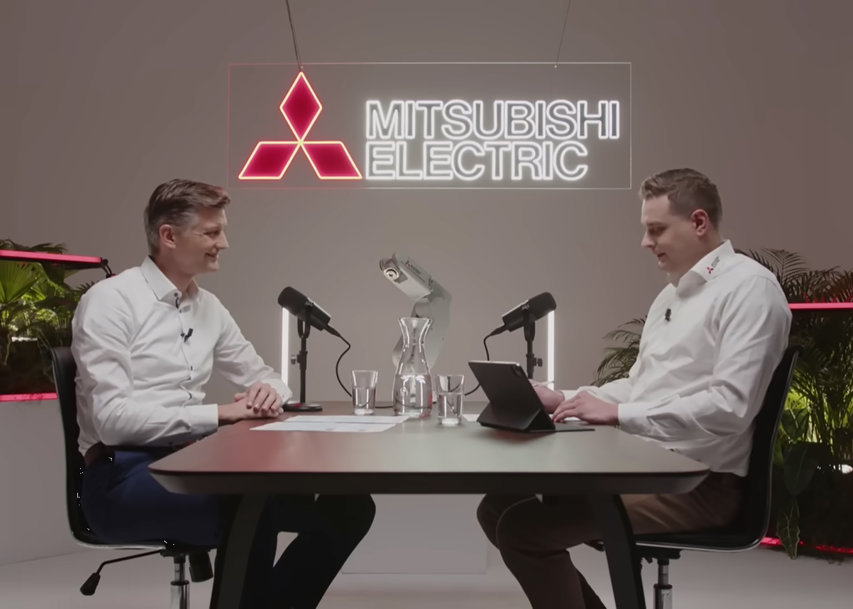Enabling Li-ion battery manufacturers to turn data into efficiency gains
The demand for lithium-ion batteries (LIBs) is continuing to skyrocket, driven by the growing market for more sustainable e-mobility solutions. For LIB cell manufacturers to get the most out of the current opportunities, they need to be able to quickly deliver high volumes of quality products while maintaining a low environmental impact.

Klaus Petersen, Director – Automotive & Lithium Battery Industries, Factory Automation EMEA at Mitsubishi Electric Europe B.V., explains how digital technologies can help LIB manufacturers in this pursuit in the videocast “Lithium-Ion Batteries: From data to competitive advantage”.
The most effective and future-proof way to do this is through data-driven process control, according to Klaus Petersen. Thanks to his extensive experience as a quality specialist in the automotive sector, he has an in-depth understanding of how process knowledge can help to simultaneously improve end products and production efficiency. To gain the unique, actionable insight required to realise these benefits, LIB cell manufacturers need to quantitatively monitor what is going on in the shop floor as well as how these activities and their operating conditions influence quality. This type of setup is also key to identifying inefficiencies and tackling them, lowering expenses while supporting the delivery of cost-competitive, reliable LIB cells.
Ultimately, by developing a comprehensive overview of their processes and products, companies can also take key steps to implement automated operations that adjust their parameters in real-time to consistently create quality batteries and improve productivity. Even more, they can set up fully integrated production lines as well as connect to partner companies to share data. As a result, value-adding knowledge can be shared to support traceability and create quality-centric supply chains with a limited environmental footprint.
To watch Klaus Petersen’s full interview and learn more about the real-world benefits of digital technologies for competitive process control in LIB cell production visit: https://bit.ly/3BKDN12

Image Caption: Klaus Petersen, Director for Automotive & Lithium Battery Industries, Factory Automation EMEA at Mitsubishi Electric Europe B.V.

